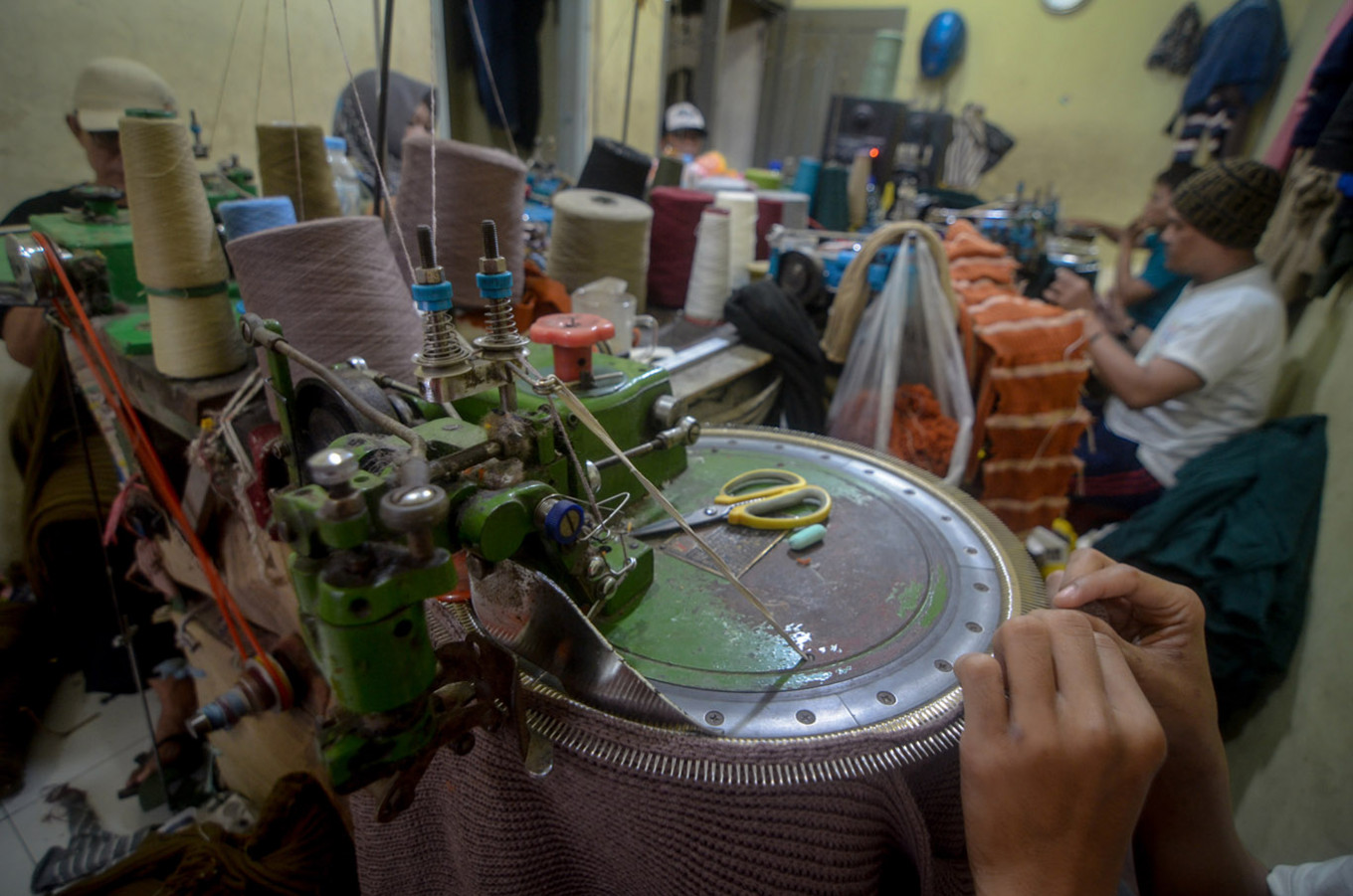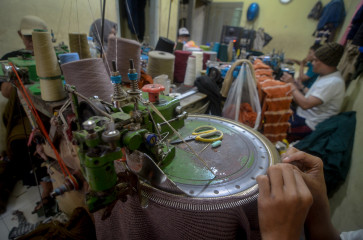Popular Reads
Top Results
Can't find what you're looking for?
View all search resultsPopular Reads
Top Results
Can't find what you're looking for?
View all search resultsRCEP poses challenges to IT, labor-intensive industries in Indonesia
The world’s largest regional trade agreement could potentially pose challenges for Indonesia’s telecommunications and information and technology industries, as well as the labor-intensive textile, footwear and auto industries.
Change text size
Gift Premium Articles
to Anyone
 Workers complete the production of knitwear at Rajong Binong Jati Center in Bandung, West Java, on March 6. The Indonesian Textile Association (API) has stated that due to COVID-19, the textile industry and textile products have been constrained by the supply of raw materials and machine parts for the garment industry. (Antara/Raisan Al Farisi)
Workers complete the production of knitwear at Rajong Binong Jati Center in Bandung, West Java, on March 6. The Indonesian Textile Association (API) has stated that due to COVID-19, the textile industry and textile products have been constrained by the supply of raw materials and machine parts for the garment industry. (Antara/Raisan Al Farisi)
I
ndonesia might see increased competition in various industries following the signing of the Regional Comprehensive Economic Partnership (RCEP), despite the deal providing wider market access and investment opportunities, business players and experts have stated.
As the world’s largest regional trade agreement, the RCEP could potentially pose challenges for Indonesia’s telecommunications and information and technology industries, as well as the labor-intensive textile, footwear and auto industries, according to the Indonesian Chamber of Commerce and Industry (Kadin).
“The government needs to boost the competitiveness of our investment climate in these industries,” Kadin deputy chairwoman Shinta Kamdani told The Jakarta Post via text message on Tuesday.
“This is to ensure that the potential investment from the RCEP is channeled toward improving the competitiveness of our exports, which still fare poorly in the region, instead of using a protection [mechanism] that is counterproductive to improvements in competitiveness, productivity and efficiency of our industries at home.”

















